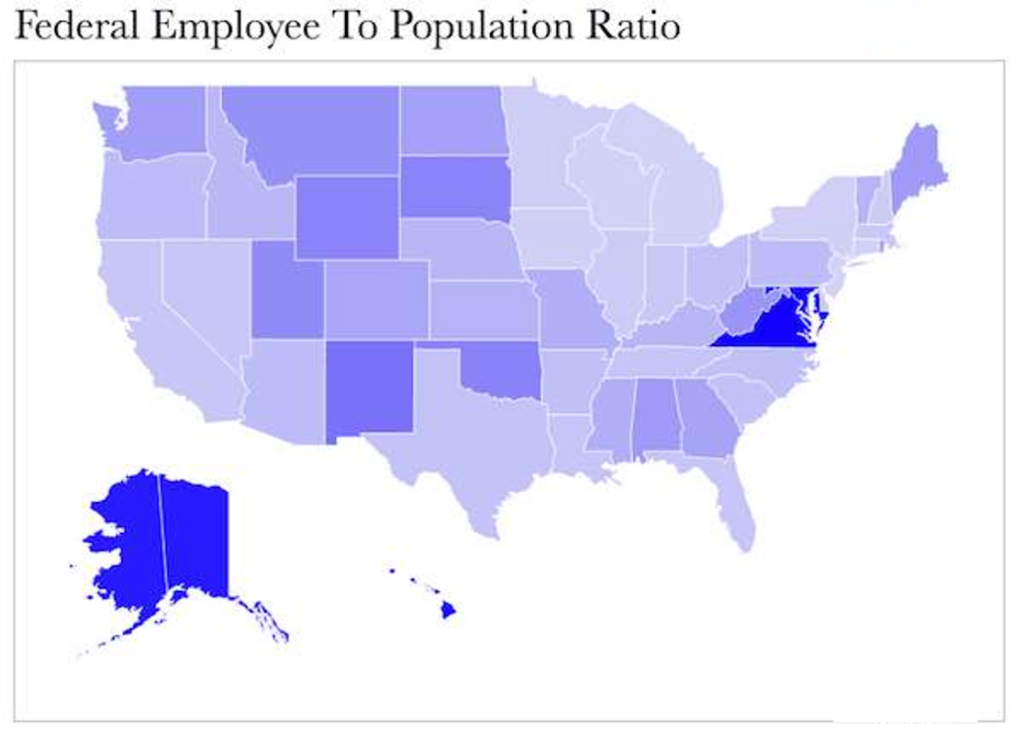Elon Musk’s newly created “Department of Government Efficiency” (DOGE) could spell trouble for many federal employees. The initiative aims to cut costs through regulation rollbacks, workforce reductions, and a strict return-to-office mandate, with Musk suggesting that remote work and inefficiencies are dragging down productivity. Here are the top 10 federal employees or roles most at risk of losing their jobs under DOGE’s cuts, based on Musk’s outlined goals and past actions.

1. Remote-Only Workers
Employees who rely entirely on remote work are first in line for cuts. Musk has repeatedly criticized remote work as unproductive, and DOGE’s return-to-office mandate leaves little room for exceptions. Many federal employees who cannot relocate or commute may face dismissal.

2. Administrative Support Staff
With Musk and Ramaswamy pushing for automation and AI to streamline government functions, administrative roles are likely to be heavily reduced. Tasks like scheduling, data entry, and paperwork processing are prime targets for replacement by technology.

3. Regulatory Compliance Officers
As DOGE plans to eliminate many federal regulations, the employees tasked with enforcing these rules may become redundant. Entire departments focused on compliance with environmental, labor, and financial regulations could face significant downsizing. These are the people who make sure other departments follow the law.

4. Public Affairs Specialists
With Musk emphasizing efficiency and cost-cutting, communications and public relations roles within federal agencies could be seen as non-essential. These employees may find their positions eliminated as DOGE focuses on core operational roles. These are the people responsible for telling the public what the government is doing and answering questions the public might need answered.

5. Planned Parenthood Liaisons
DOGE specifically calls out Planned Parenthood for funding cuts, which may extend to federal employees overseeing its grants and partnerships. This aligns with broader plans to reduce discretionary spending on programs perceived as politically controversial. These people are responsible for making sure federal dollars for women’s health clinics are used effectively.

6. Non-Defense Discretionary Budget Staff
Employees managing programs funded through the $500 billion discretionary budget, like arts, cultural, and educational initiatives, are at risk. Programs like the Corporation for Public Broadcasting could lose substantial funding, leaving associated staff vulnerable.

7. IT Workers Supporting Remote Systems
Ironically, as federal agencies enforced hybrid and remote work policies during the pandemic, IT teams were expanded to support these systems. With the return-to-office mandate, workers maintaining remote infrastructure may find their roles no longer necessary.

8. Employees in States with Large Federal Workforces
States like Alabama and Oklahoma, which employ a disproportionate number of federal workers relative to their populations, may see cuts that reflect their high headcounts. This will likely impact roles across multiple agencies, especially in regional offices.

9. Diversity, Equity, and Inclusion (DEI) Coordinators
With Musk’s history of targeting roles he perceives as ideologically driven, DEI-focused positions in federal agencies may be viewed as expendable. These roles could face heightened scrutiny under DOGE’s cost-cutting measures. These are the people who make sure minority groups are treated equally.

10. Contract Workers
While Musk hasn’t directly addressed federal contractors, his history with cost-cutting suggests this group is particularly at risk. Contract roles in research, IT, and administrative support may be slashed as part of broader reductions.
Broader Implications
The DOGE initiative is set to reduce headcounts by potentially millions, aiming for cuts comparable to the 80% reduction Musk implemented at Twitter. These reductions will likely have far-reaching effects on both the federal workforce and local economies, particularly in states with significant federal employment.





